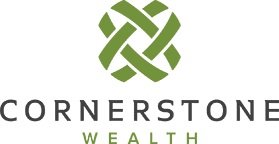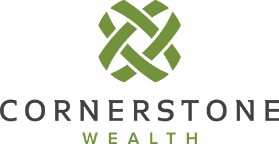Give More, Owe Less: Top Tax Planning Strategies for Business Owners in 2025
The Role of a Tax Planning Advisor for Business Owners
For business owners, 2025 presents a unique opportunity to combine charitable giving with effective year-end tax strategies. Changes like higher AGI deduction limits and expanded options for charitable contributions mean you can structure gifts to maximize your tax efficiency.
A dedicated tax planning advisor for business owners at Cornerstone Wealth Group can help you build a year-end tax planning checklist for 2025 that aligns with both your financial goals and your philanthropic priorities.
Creating a Year-End Tax Planning Checklist 2025
This year, forward-thinking planning is vital. The decisions you make now about charitable giving and tax planning strategies for business owners can help you give more while owing less. Cornerstone has got just the right year-end tax planning checklist for you!
Charitable Giving for Business Owners: Key Tax Law Changes
New Tax Thresholds Explained
The 2025 tax year is a game-changer for charitable giving as a business owner, thanks to sweeping changes under the One Big Beautiful Bill Act.
The OBBB preserves generous AGI deduction limits, allowing gifts up to 60% of AGI for cash contributions, but will introduce a .5% AGI floor for itemized deductions starting in 2026 and cap high-income itemizers’ deductions at 35%. New options for above-the-line deductions will also appear for non-itemizers, making this year the most strategic time to take action.
Charitable Contributions as a Business Owner: AGI and Deduction Limits
Another key update affects how business owners plan their charitable contributions. Those eligible for Qualified Charitable Distributions will see the limit increase to $108,000 per year, and this rises again to $115,000 in 2026.
For non-itemizers, a new above-the-line deduction will begin in 2026 (up to $1,000 for individuals and $2,000 for couples), although 2025 remains the best year to maximize large gifts under current deduction rules.
As Cindy Meares, Director of Tax Services at CWG, notes:“Proactive tax planning for business owners, especially around charitable giving, can transform generosity into real tax savings and greater impact. The Cornerstone team designs strategies that work multiple ways, reducing your tax bill while helping you give more.”
Staying up to date with these changes puts you in a strong position to pursue year-end giving as a business owner and leverage charitable tax strategies in ways that create lasting value.
Year-End Charitable Giving: Why Timing Matters
Bracket Management and Charitable Tax Strategies as a Business Owner
When it comes to year-end charitable giving as a business owner, timing is everything. With the higher AGI limits and favorable rates set to expire in 2025, planning ensures you can maximize charitable tax strategies that may soon become less accessible.
Accelerating your charitable contributions, sometimes called “bunching,” lets you consolidate several years of donations into the current tax year. This approach can help you cross the new threshold for itemized deductions, which is key under the coming rules set by the One Big Beautiful Bill Act.
Charitable Tax Strategies for Business Owners: Batching and Bunching Gifts
Effective tax planning strategies for small business owners include pairing charitable intent with innovative bracket management.
For example, if your business had a strong year, front-loading charitable gifts might help keep you in a lower tax bracket, saving you more on your overall liability.
Combining your charitable giving with your year-end tax planning checklist for 2025 positions small business owners to take advantage of limited-time benefits while supporting causes they care about.
Thoughtful timing can mean the difference between ordinary and outstanding results when it comes to charitable tax strategies as a business owner.
Advanced Charitable Tax Strategies: QCDs, DAFs, and Appreciated Assets
Qualified Charitable Distributions and Year-End Giving as a Business Owner
Qualified Charitable Distributions (QCDs) remain a strong charitable tax strategy for business owners who are age 70½ or older. The QCD limit increase will enable you to make direct transfers from your IRA to qualified charities.
This move not only satisfies required minimum distributions but also reduces your taxable income, making year-end charitable giving as a business owner much more efficient.
Donor-Advised Funds: Tax-Efficient Charitable Giving for Business Owners
Donor-advised funds (DAFs) are another powerful option for year-end giving for business owners.
• With a DAF, you can bunch several years’ worth of charitable contributions in 2025.
• Claim a full deduction up to the current AGI limit.
• Distribute grants to charities over time.
This approach secures the deduction now, before new rules take effect, and gives you flexibility in your charitable giving.
Charitable Donations as a Business Owner: Using Appreciated Assets
Donating appreciated stock or other assets is a creative way to increase your impact while reducing capital gains tax.
By gifting assets that have grown in value, you avoid the tax on the appreciation and receive a deduction for the current fair market value of the asset. For instance, donating $100,000 in stock purchased for $50,000 allows you to deduct the full $100,000 and sidestep taxes on the $50,000 gain.
For business owners seeking a sophisticated charitable tax strategy, this can be a cornerstone of your year-end tax planning checklist for 2025.
Every charitable tax strategy as a business owner should be approached with care and professional insight, ensuring your generosity is aligned with your long-term goals as well as the latest tax planning opportunities.
Business Entity Moves: Maximizing Charitable Deductions
Charitable Giving for C-Corporation Owners
For C-corporation owners, charitable giving in 2025 is especially strategic.
Under current rules, cash gifts up to 25% of taxable income are deductible. However, starting in 2026, only gifts exceeding 1% of income will be deductible, with an overall cap of 10%.
By bunching several years’ donations into 2025, businesses can maximize deductions, effectively “all but 1%” of the total lump sum.
If your corporation typically gives 3% of income annually, donating three years’ worth at once enables you to claim almost the full deduction. DAFs are an efficient vehicle, and special rules exist for donations of inventory or agricultural products.
Charitable Contributions for S-Corporations and Partnerships
For S-corporations and partnerships, charitable contributions made at the entity level pass through to owners, who claim the deduction personally based on their AGI.
Careful planning ensures you get the most from your charitable tax strategies as a business owner. For example, optimizing the timing of gifts or, in exceptional cases, considering a conversion to C-corp status before donating shares for a cleaner deduction.
Leveraging State and Local Tax Strategies
Layering Charitable Tax Strategies for Business Owners
Some states, such as North and South Carolina, offer business owners valuable tax credits for charitable giving, especially for conservation easements and land donations. These credits can reach up to 25% of the donated value and stack with federal deductions.
By combining state-level programs with your year-end charitable giving as a business owner and coordinating with a tax planning advisor, you can enhance the ROI of your charitable contributions, optimize your business expenses, and fully leverage all available benefits.
Combining State Credits with Federal Charitable Giving
Plan early to coordinate both state and federal charitable tax strategies for business owners, maximizing deductions and credits while supporting causes that matter to you.
The Value of Personalized Guidance
Tailored Year-End Tax Planning Checklist 2025 for Business Owners
The most effective tax planning strategies for business owners are never one-size-fits-all.
Every decision about charitable giving—how, when, and what to give—depends on your business structure, priorities, and legacy goals. At Cornerstone Wealth, our tax planning advisors craft tailored year-end tax planning checklists for 2025 that help business owners maximize deductions, manage brackets, and position your philanthropy for the greatest effect.
Customized Charitable Giving Plans with Cornerstone Wealth Group
Our approach to charitable giving for business owners begins with listening: we understand your vision and then map out options that blend tax efficiency with social impact.
Whether you’re considering a donor-advised fund, appreciated assets, or year-end charitable giving as a business owner, our expertise ensures your strategies fit your unique picture.
“Every year brings changes in the tax landscape, and business owners benefit most by working with experienced advisors. At Cornerstone Wealth Group, we use a year-end tax planning checklist and custom strategies so charitable donations as a business owner go further for your legacy.”
• Stephen Gaskill, Assistant Director of Tax Services at CWG
A proactive advisor’s perspective can transform your year-end giving, helping you do more for your business and your community while taking the guesswork out of compliance, deadlines, and integrating bonus depreciation benefits.
Take Action—Your 2025 Year-End Giving Game Plan
Make Charitable Donations as a Business Owner Count in 2025
This year’s unique tax landscape won’t last. By including charitable contributions as a business owner in your year-end tax planning checklist for 2025, you can maximize impact and minimize tax owed.
Meet with a Tax Planning Advisor for Business Owners
Reach out to Cornerstone Wealth today to create your customized charitable giving strategy. Let our team help you give more, owe less, and build a legacy of generosity that benefits both your business and your community.
Join Our Upcoming Webinar on OBBBA & Business Owner Tax Strategies
Want to stay ahead of the latest changes? Join our upcoming webinar dedicated to the One Big Beautiful Bill Act (OBBBA) and discover actionable tax planning strategies for business owners. You’ll get insights from our specialists, answers to your questions, and a roadmap for confidently navigating 2025.
This is for informational purposes only and does not serve as personal advice. Please speak to a qualified representative regarding your unique circumstances. Links within this blog are not associated to Cornerstone Wealth and are subject to change. Hyperlinks will take you to a third-party website whose content Cornerstone Wealth does not control. Investment advisory services offered through Cornerstone Wealth Group, LLC dba Cornerstone Wealth, an SEC registered investment adviser.

